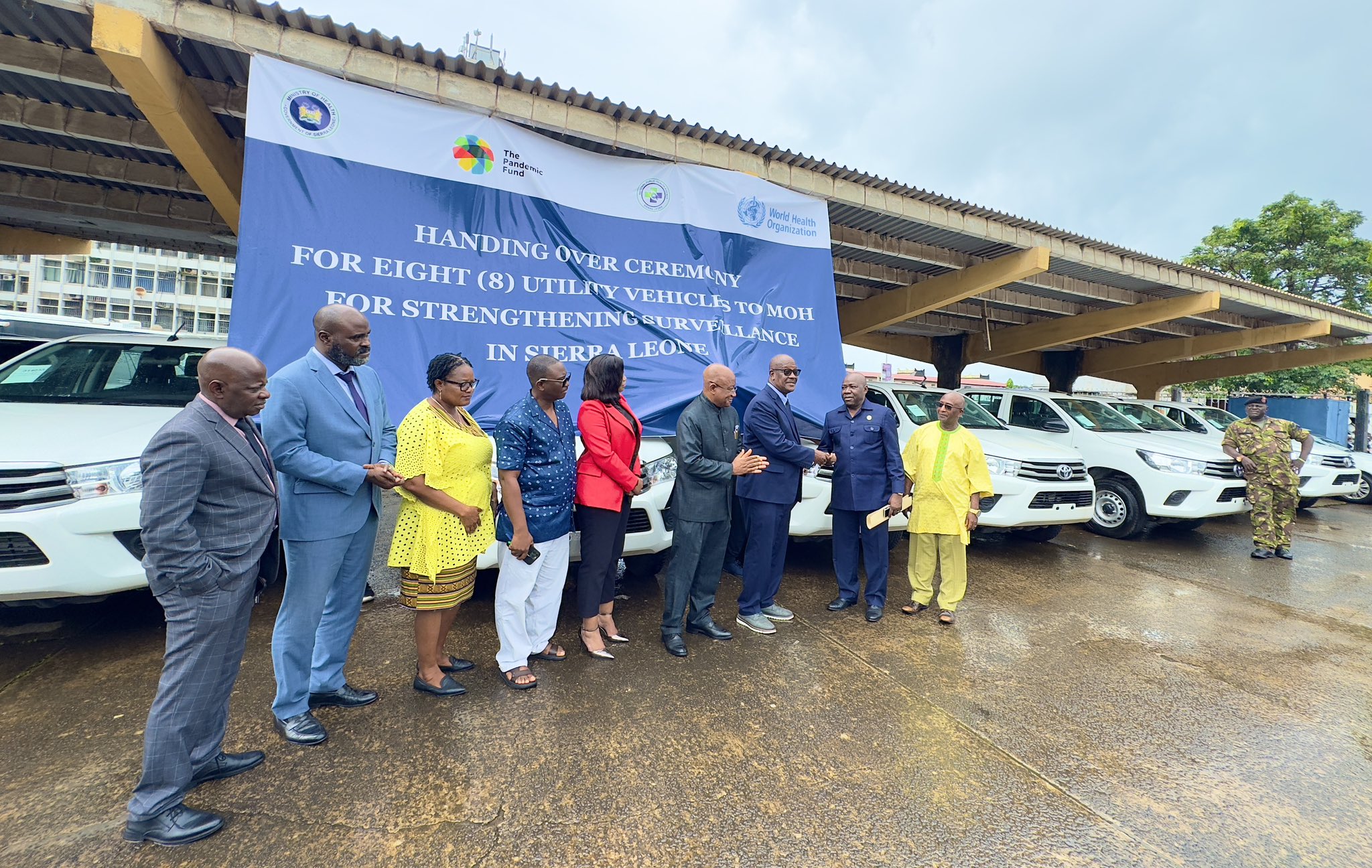Sierra Leone’s efforts to contain the spread of Mpox have received a significant boost following the donation of eight surveillance vehicles by the World Health Organization (WHO) to the National Public Health Agency (NPHA).
The vehicles, funded by the Pandemic Fund, were officially handed over on Thursday during a ceremony at the Youyi Building in Freetown. The move is aimed at strengthening field response and improving outbreak containment, particularly in remote and high-risk communities.
WHO Country Representative Dr. George Ameh emphasized that the donation is part of a broader push to improve national health security and support early detection and rapid response to disease outbreaks. He noted that the vehicles will help enhance mobility, enabling health workers to respond more swiftly to Mpox cases across rural and urban areas.
“This is not just about logistics. It’s about building a resilient surveillance system and strengthening frontline response,” Dr. Ameh said, adding that development partners like UNICEF, FAO, and the World Bank are working together to ensure a coordinated national response.
Minister of Health and Sanitation Dr. Austin Demby hailed the donation as a timely intervention, especially as the country has witnessed a drop in Mpox cases due to renewed strategic efforts.
“From over 4,000 reported cases between January and July, we now have just 286 active cases. This progress reflects our improved strategy and stronger partnerships,” Dr. Demby said.
He reiterated the government’s focus on four key pillars of the health system: primary care, secondary and tertiary care, a robust referral network, and overall health security.
Executive Director of the NPHA, Professor Foday Sahr, expressed gratitude for the support and confirmed that the vehicles will enable rapid deployment of surveillance teams nationwide. He credited strong leadership and early action, including the President’s directive for a robust national response, as key to the country’s progress in tackling Mpox.
“This support gives us the speed and reach we need. We are now better equipped to contain the outbreak and protect our communities,” Prof. Sahr said.
The latest handover builds on earlier contributions, including six vehicles and two ambulances provided last year. Authorities say the new resources will play a critical role in ensuring that health interventions are timely, coordinated, and effective at the community level.




 Post a comment
Post a comment









